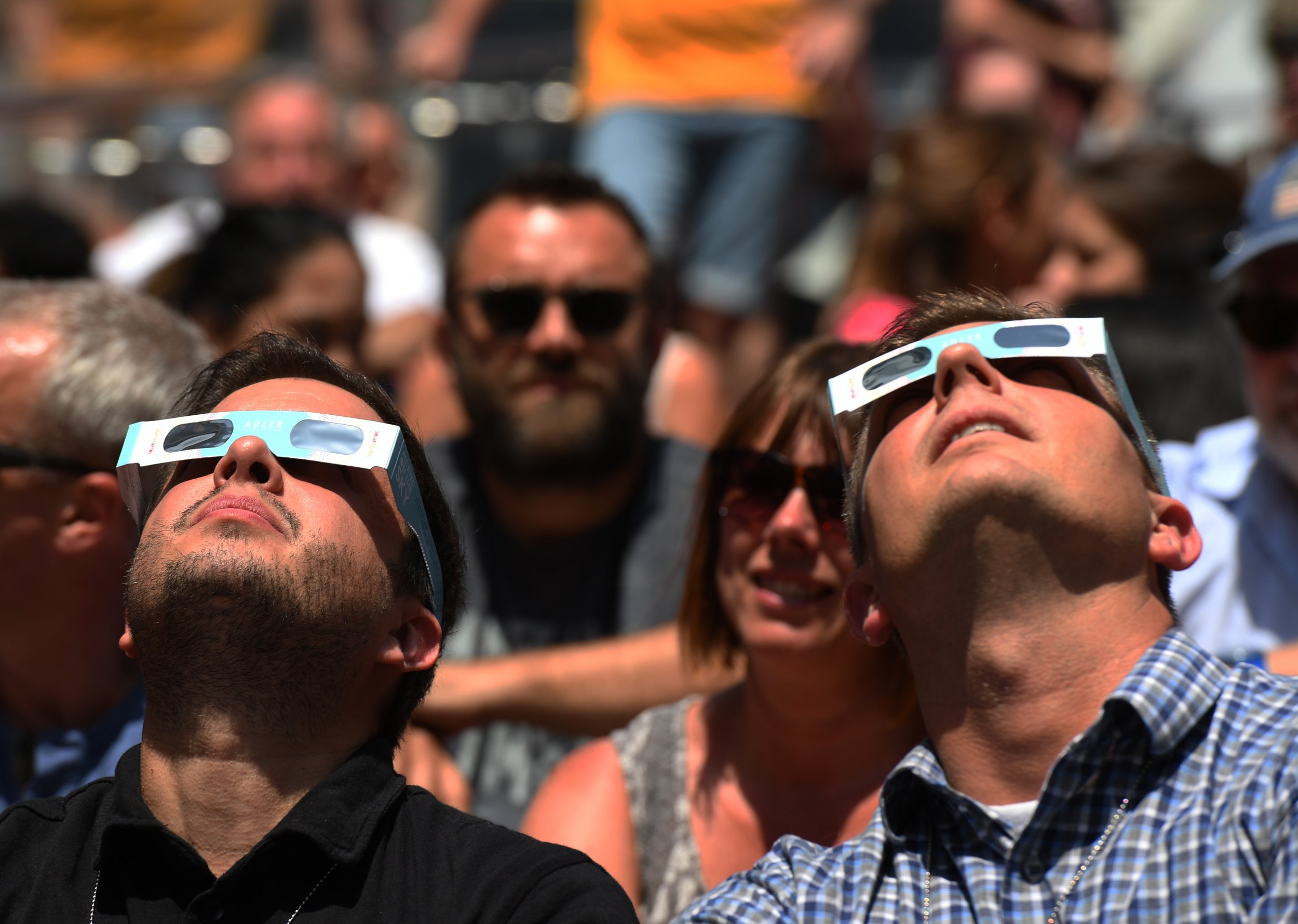
When Hurricane Harvey made landfall in Texas days after much of the continental United States experienced a historic total solar eclipse, a pastor in Washington state posed a question: Could the two natural phenomena be related?
"What are the odds of having both events occurring in the same week?" asked Mark Biltz. The pastor went on to cite Luke 21:25 from the Bible, which says, "There will be signs in the sun, moon and stars; and on the earth anxiety of nations, in perplexity for the roaring of the sea and the waves."
Then Blitz pointed out that the eclipse occurred on August 21, and the hurricane made landfall in Texas on August 25, the same numbers as Luke 21:25. "Who else but God could do that?" he said.
Biltz wasn't the only person to point to that biblical verse, and he also wasn't alone in suggesting the events were related, either due to divine intervention or otherwise. On Reddit and Twitter, people asked, Did the eclipse cause Hurricanes Harvey, Irma and Maria?
Related: Are Hurricane Maria and the Mexico earthquake related?
I'm wondering, all these natural disasters from hurricane Harvey to Irma, Jose, Maria and now earthquakes, is it because of solar eclipse? 🤔
— Rian’Wan Kenobi 1000 🦦 (@rian2690) September 20, 2017
Did the eclipse cause Hurricane Harvey?
— CatoTheYounger (@catoletters) August 30, 2017
@cnnbrk DID THE SOLAR ECLIPSE CAUSE THESE HURRICANE CONDITIONS???🔥💫🌔🌓🌪🌪🌪🌚🌊
— Jacqueline Dianne Hi (@Jacquel20121997) September 5, 2017
It's true that solar eclipses can have an impact on weather, and scientists have studied those effects for more than a century. In 1901, American meteorologist Henry Helm Clayton suggested in a paper that a solar eclipse can cause cold air to form, which could lead to a brief cyclone.
More recently, scientists who monitored wind speeds from 121 locations in England during a total solar eclipse in 1999 found that during the eclipse the wind dropped in speed and changed direction and that temperatures decreased too. Those findings appeared in 2012 in the British journal Proceedings of the Royal Society A.
Temperatures can drop during an eclipse by as much as about 15 degrees Fahrenheit, according to NASA. They do so in a way that is different than after the sun has gone down on a typical day. "Instead of temperatures cooling because the sun has set, the air cools because the moon covers 100 percent of the sun's disk and temporarily blocks sunlight," according to the Farmers' Almanac. This is a faster cooling process, occurring over a span of minutes instead of hours. During the August eclipse, temperatures dropped several degrees at various locations, outposts of the National Weather Service reported.
But the effect solar eclipses have on weather largely stops there, according to experts who have studied the celestial event. "We get a total solar eclipse somewhere on the planet almost every year," says Angela Speck, the director of astronomy at the University of Missouri, who studied the August eclipse. So if the events caused hurricanes, "we would have seen it before now."
As for the impact on weather, she says, "You have a short-term effect.... From the point of view of it giving us a storm or a chain of storms that happen several weeks later, it's incredibly unlikely."
A colleague of Speck's who also studied the August eclipse, Patrick Market, an expert in meteorology at the University of Missouri, says of the alleged connection, "I don't see how that's possible." He adds, "The shadow [of the moon] has an impact, it drops temperatures, but it lasts for a few hours, and the changes in temperature are really rather minor."
A solar eclipse might not cause a hurricane, but it can coincide with one. That has happened twice since 1900, the earliest year on record, according to the Weather Channel. Such pairings, as happened in 1959 and 1932, are so rare because only 18 solar eclipses in that time have cast a shadow on the Atlantic Basin, where hurricanes and tropical storms occur, the channel said.
Uncommon Knowledge
Newsweek is committed to challenging conventional wisdom and finding connections in the search for common ground.
Newsweek is committed to challenging conventional wisdom and finding connections in the search for common ground.
About the writer
Max Kutner is a senior writer at Newsweek, where he covers politics and general interest news. He specializes in stories ... Read more
To read how Newsweek uses AI as a newsroom tool, Click here.








